Uganda
The European Union and the US have called for probe into Uganda’s election violence even as the opposition leader Bobi Wine remains under house arrest.
Uganda's longtime leader President Yoweri Museveni was declared the winner for a record sixth term, amid an internet blackout and allegations of abuse.
Uganda’s opposition leaders and supporters have complained of numerous harassment by the state security before and after the election.
Uganda's government spokesman on Tuesday accused the US ambassador of breaching diplomatic norms and engaging in "mischief" over her attempt to visit opposition leader Bobi Wine, who is confined to his home.
The former popstar-turned-politician has been under effective house arrest guarded by soldiers and police, since he cast his ballot in last Thursday's presidential election, which he said was riddled with fraud.
US Ambassador Natalie Brown on Monday tried to meet with Wine -- whose real name is Robert Kyagulanyi -- and was met with a line of police officers clad in riot gear who turned her away.
"The purpose of Ambassador Brown's visit was to check on Mr. Kyagulanyi's health and safety, given that he’s effectively been unable to leave his home, with security forces surrounding his residence," read a statement posted on the US Embassy’s Facebook page on Monday.
Wine, 38, came second in the presidential election, which returned Yoweri Museveni to power for a sixth term, and has said he is cut off from his lawyers and party as the days tick by for him to challenge the vote in the courts.
Government spokesman Ofwono Opondo said the attempt by Brown, who took up her post during Uganda's fraught election campaign, was a sign "that she is up to mischief".
"We expect her to write to the Ministry of Foreign Affairs and to adhere to diplomatic norms. We don't think that a friendly country or someone who wants to help out in a difficult situation would act in this way," he told AFP.
"It is the arrogance of the Americans, who think they rule the world."
The embassy of the United States said Uganda's election campaign had been "marred by the harassment of opposition candidates, campaign staff, and supporters; suppression of the media and civil society organization activities; and a nationwide internet shutdown before, during, and after voting day."
"These unlawful actions and the effective house arrest of a presidential candidate continue a worrying trend on the course of Uganda's democracy."
Asked if Wine was under house arrest, Opondo said he is "under the protection of the Uganda government" because he is the "target of many forces".
"It's in the interest of the Government of Uganda for him (Wine) not to be harmed in any way."
Lawyers for Bobi Wine have asked the Ugandan High Court to order security forces to produce the opposition leader and either show a legitimate reason for his confinement or release him.
A hearing has been set for Thursday morning.
"We are seeking a writ of habeas corpus for Kyagulanyi and his wife because they cannot leave their home and they cannot access lawyers, meaning they are under illegal detention," lawyer Anthony Wameli told AFP.
Security is tight in the capital, Kampala, where Bobi Wine is popularImage caption: Security is tight in the capital, Kampala, where Bobi Wine is popular
The European Union (EU) says it is concerned about the continued harassment of politicians and civil society activists in Uganda after last week's general election.
The incumbent, President Yoweri Museveni, who has been in power since 1986, won his sixth elective term.
In a statement, the EU Council of Ministers called on the government to restrain its security agencies, investigate allegations of abuses and bring to account all those responsible for violations.
The vote was marred by harassment of opposition candidates, suppression of media and a nationwide internet shutdown.
Opposition presidential candidate, Robert Kyagulanyi, a pop star-turned-politician known as Bobi Wine, has been under house arrest in the capital, Kampala, since Friday after he began disputing the results of the presidential election.
The EU ministers said the internet shutdown disrupted the work of journalists, observers and polling agents expected to monitor the election.
Election observers from the regional East African Community have echoed the concerns of the EU in their preliminary report.
The Intergovernmental Authority on Development (Igad) and the African Union said the elections were peaceful.



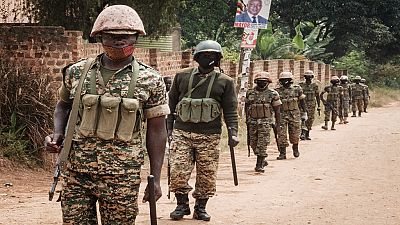

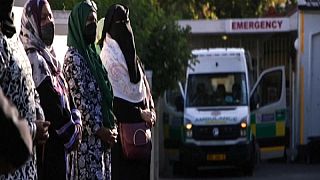
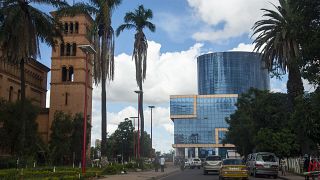
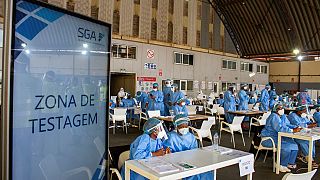
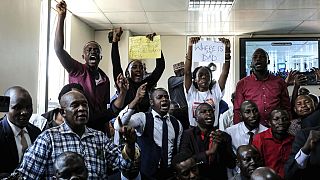
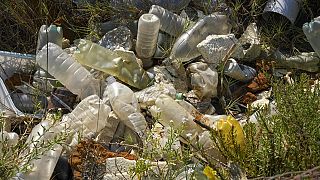
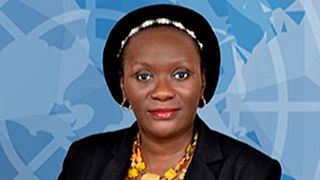



Go to video
Oligui Nguema: A breakthrough or continuity for Gabon? [Business Africa]
02:42
Global healthcare at a crossroads: African scientists seek local solutions
04:40
Young child becomes second person to die of Ebola in Uganda
Go to video
Pics of the day: February 20, 2025
06:06
Frail Ugandan opposition figure back in jail after brief court appearance
00:59
Detained Ugandan opposition leader briefly taken ill after hunger strike